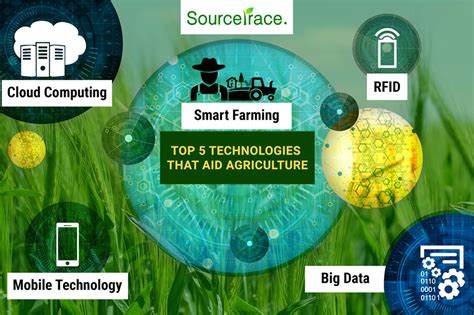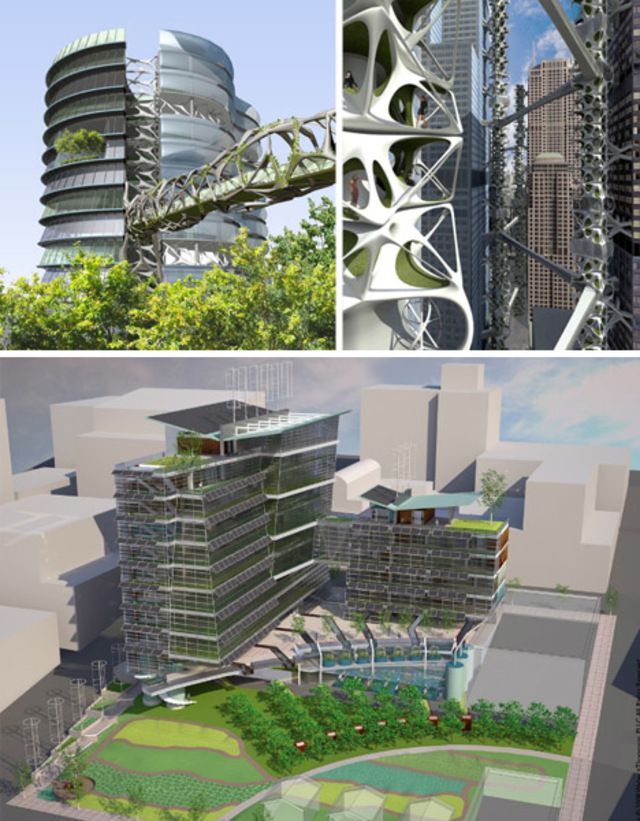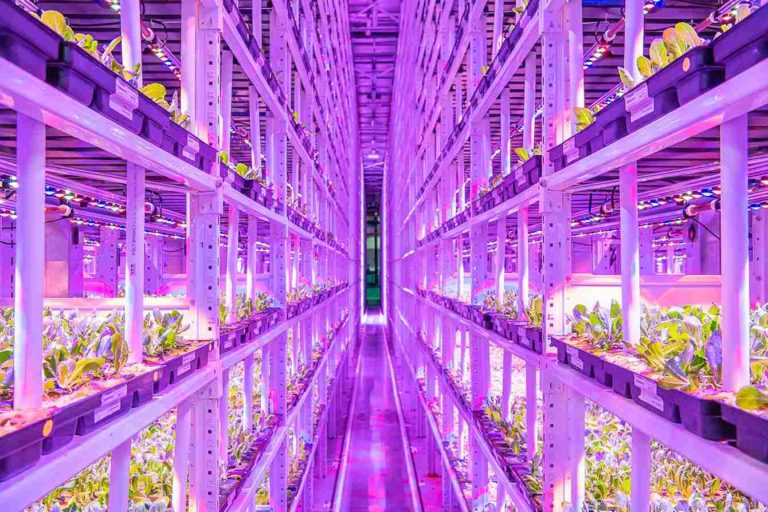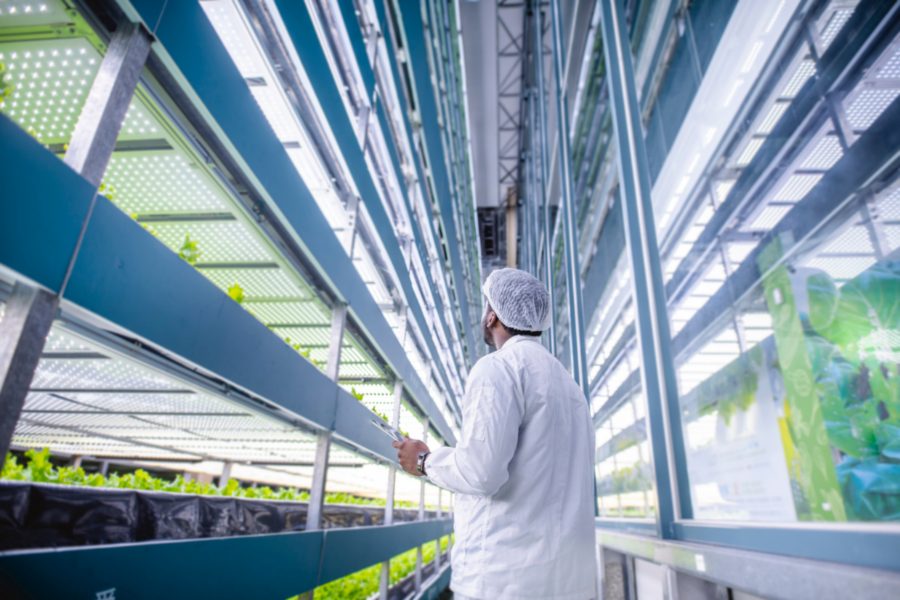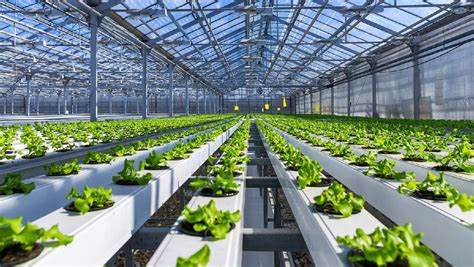Vertical Farms and the Circular Economy: Closing the Food Loop Introduction The concept of vertical farming has gained significant attention in recent years for its potential to revolutionize food production. Vertical farms utilize vertical space and advanced technology to offer a sustainable solution to the challenges of traditional agriculture. This article explores the integration of vertical farms into the circular economy, highlighting their relevance and importance in creating a closed-loop food system. Historical Background Evolution of Vertical Farming Vertical farming has its roots in the early 20th century when scientists and inventors began experimenting with growing plants indoors using artificial…
Author: sohailkhan2k22
Vertical Farming: Revolutionizing Agriculture for a Sustainable Future Introduction The concept of vertical farming has gained significant attention in recent years due to its potential to address the increasing demand for food and the need for sustainable agricultural practices. This article will explore the significance of vertical farming in modern agriculture and highlight its potential benefits in addressing key agricultural challenges. Historical Background Vertical farming, although a relatively new concept, has its roots in ancient civilizations such as the Hanging Gardens of Babylon. However, it was not until the 20th century that vertical farming started to gain traction. The advancements…
Introduction Vertical farms have gained significant attention due to their potential to address the challenges of food supply chains. This article explores the importance of vertical farms in ensuring resilient food supply chains and their relevance in the context of global food security and sustainability. Historical Background Traditional farming methods have evolved over centuries, but they face limitations in meeting the increasing demand for food. Vertical farming has emerged as a viable solution, utilizing innovative techniques to maximize production in limited spaces. Additionally, the role of food supply chains in historical famines or crises highlights the need for resilient systems.…
Vertical Farming: Revolutionizing Agriculture for a Sustainable Future Introduction In recent years, the concept of vertical farming has gained significant attention as a solution to address pressing global challenges such as food security, sustainability, and urbanization. By utilizing innovative techniques and technologies, vertical farming aims to cultivate crops in vertically stacked layers, thus maximizing space and resources. This article explores the historical background, key concepts, benefits, challenges, and future outlook of vertical farming, as well as its integration with the philosophy of local food movements. Historical Background Vertical farming has its roots in the early 20th century, with the work…
Vertical Farming: Challenging Conventional Agriculture Practices Introduction Vertical farming has gained significant attention in recent years as a revolutionary concept in agriculture. By utilizing vertical space in urban environments, this innovative farming method aims to overcome the limitations of traditional agriculture practices. This article explores the relevance and importance of vertical farming in addressing the challenges faced by conventional farming methods. Historical Background To understand the significance of vertical farming, it is crucial to examine its historical background. The concept of vertical farming can be traced back to the ancient Hanging Gardens of Babylon, where plants were cultivated in terraced…
Vertical Farming: Revolutionizing Sustainable Crop Selection Introduction Vertical farming is an innovative approach in sustainable agriculture that has gained significant attention in recent years. This article explores the importance of crop selection in vertical farming and delves into the various aspects and considerations involved in this practice. Historical Background Vertical farming emerged as a response to urbanization and the scarcity of agricultural land. Throughout history, there have been pioneers and examples of vertical farming practices. From ancient civilizations utilizing terraced fields to the Hanging Gardens of Babylon, vertical farming has continuously evolved to meet the demands of urban societies. Key…
Vertical Farms and Sustainable Agriculture: Revolutionizing Food Production Introduction Vertical farming and sustainable agriculture have become vital topics in the realm of food production. This article aims to provide a comprehensive overview of these innovative approaches to farming, addressing their historical background, key concepts, benefits, challenges, and future outlook. By understanding the significance of vertical farms and sustainable agriculture standards, we can work towards addressing food security and promoting environmental sustainability. Historical Background The concept of vertical farming can be traced back to the Hanging Gardens of Babylon in ancient times. However, it was not until the 21st century that…
Urban Agriculture and Vertical Farming: Feeding the Cities of the Future Introduction Urban agriculture and vertical farming have gained significant attention in recent years due to their potential to address pressing issues such as sustainability, food security, and urban planning. This article explores the origins, key concepts, and benefits of these practices, as well as their historical background and current developments. Historical Background The roots of urban agriculture and vertical farming can be traced back to rooftop gardens and hydroponics. During World War II, victory gardens played a crucial role in supplementing food supplies. In the early 2000s, Dickson Despommier…
Vertical Farms as Green Building Features Introduction Vertical farms have emerged as innovative green building features that address the challenges of sustainable agriculture and urban food production. This article aims to explore the historical background, key concepts, benefits, design features, environmental impact, case studies, current trends, challenges, controversies, future outlook, and significance of vertical farms as green building features. Historical Background The concept of vertical farms can be traced back to the early 20th century, but it gained significant attention in recent years due to the increasing need for sustainable food production. Notable milestones in the field include the introduction…
Urban Renewal with Vertical Farming: Transforming Cities for a Sustainable Future Introduction Urban renewal with vertical farming is a concept that combines the revitalization of urban areas with the innovative practice of vertical farming. This article will explore the relevance and importance of this topic, highlighting the potential benefits and opportunities it offers. Historical Background To understand the significance of urban renewal with vertical farming, it is crucial to delve into the historical background of both concepts. Urban renewal has evolved over time, aiming to transform deteriorating urban areas into vibrant spaces. Concurrently, vertical farming has emerged as a solution…
Vertical Farms in Educational Institutions: Revolutionizing Agriculture and Education Introduction In recent years, the concept of vertical farms in schools and universities has gained significant traction as a means to revolutionize agriculture and education simultaneously. Vertical farms, also known as indoor farms or vertical gardens, are innovative structures that allow for the cultivation of crops in vertically stacked layers. This article will explore the relevance and importance of implementing vertical farms in educational institutions, highlighting their potential to foster sustainable food production and cultivate a new generation of environmentally-conscious individuals. Historical Background The origins of vertical farming can be traced…
Vertical Farming: Revolutionizing Agriculture through Energy Efficiency Introduction In recent years, vertical farming has emerged as a groundbreaking solution to the challenges faced by traditional agriculture. This innovative method involves growing crops in vertically stacked layers, utilizing advanced technologies to create controlled environments. As the global population continues to grow, the need for sustainable and efficient farming practices becomes increasingly crucial. In this article, we will delve into the importance of addressing energy consumption in vertical farming and explore the role of energy efficiency in achieving sustainable agriculture. Historical Background Vertical farming has a rich history that dates back decades.…
Vertical Farming: Optimizing Pest and Disease Management for Sustainable Crop Production Introduction Vertical farming has gained immense popularity in recent years as a revolutionary agricultural practice. This innovative method involves growing crops in vertically stacked layers using controlled environments such as indoor farms or high-tech greenhouses. However, the success of vertical farming heavily relies on effective pest and disease management. This article explores the importance of pest and disease management in vertical farming and its potential impact on crop yield and quality. Historical Background The concept of vertical farming can be traced back to the Hanging Gardens of Babylon, one…
Introduction The future of vertical farming research holds immense importance in addressing the global challenges of food production and sustainability. With an ever-growing population and limited arable land, finding innovative solutions to meet the increasing demand for food is crucial. Vertical farming presents a promising approach that has gained traction in recent years. This article aims to explore the relevance and potential benefits of vertical farming, ultimately highlighting its impact on food production and sustainability. Historical Background Vertical farming has its roots in the concept of indoor agriculture, which dates back to the Hanging Gardens of Babylon. However, modern vertical…
Vertical Farming: Revolutionizing Agriculture and Creating Job Opportunities Introduction Vertical farming has emerged as a revolutionary concept in agriculture, with the potential to address pressing issues such as food security, urbanization, and environmental sustainability. This article explores the economic implications and job opportunities within the vertical farming industry, highlighting the need to explore this innovative sector. Historical Background The history of vertical farming can be traced back to the early 20th century, when the concept of growing crops indoors gained attention. Over time, advancements in technology and the need for sustainable food production have contributed to the emergence and growth…
Introduction Vertical Farming and Community Gardens have emerged as innovative practices that offer numerous benefits in terms of sustainable food production and community engagement. These practices have gained significant attention due to their potential to address food insecurity, reduce environmental impact, and enhance social cohesion. Historical Background Vertical Farming traces its roots back to the early 20th century when the concept of growing plants indoors using artificial light was introduced. However, it wasn’t until the late 20th century that the idea gained traction with advancements in technology and the need for sustainable farming practices. Community Gardens have a long history…
Vertical Farming and Sustainable Packaging: A Revolution in Agriculture and Environmental Conservation Introduction Vertical farming and sustainable packaging have gained significant importance in recent years. This article aims to provide an overview of these concepts, their historical background, definitions, and significance in today’s world. Historical Background: The history of vertical farming can be traced back to the ancient Hanging Gardens of Babylon. However, it gained momentum in the late 20th century. Sustainable packaging has evolved alongside environmental concerns and technological advancements. Key Concepts and Definitions: Vertical farming involves growing crops in vertically stacked layers, using technologies like hydroponics and aeroponics.…
Vertical Farming and Soil Regeneration: Revolutionizing Sustainable Agriculture Introduction Vertical farming and soil regeneration are two crucial concepts that are revolutionizing sustainable agriculture. This article delves into the historical background, key concepts, benefits, case studies, current trends, challenges, and future implications of vertical farming and soil regeneration. Historical Background Vertical farming can be traced back to the Hanging Gardens of Babylon, one of the Seven Wonders of the Ancient World. However, the modern concept gained prominence in the early 21st century with the development of advanced technologies and the need for sustainable food production. Similarly, soil regeneration techniques have evolved…
Introduction Vertical farming is a groundbreaking agricultural practice that offers a sustainable solution to reduce food waste. This article provides an overview of vertical farming’s relevance in addressing the pressing issue of food waste and its impact on the environment, economy, and society. Historical Background The concept of vertical farming has evolved over time, driven by the need to maximize agricultural productivity in limited urban spaces. Early pioneers in vertical farming explored ways to optimize crop production in vertically stacked layers. Key Concepts and Definitions Vertical farming is the cultivation of crops in vertically stacked layers or structures, using advanced…
The Significance of Growing Media in Gardening and Horticulture Introduction Growing media selection is a critical factor in gardening and horticulture practices, directly influencing plant growth, nutrient uptake, and overall health. This article explores the three primary options for growing media: Coconut Coir, Rockwool, and Peat Moss. Each of these media offers unique characteristics and benefits, making them suitable for various applications in gardening and horticulture. Historical Background Coconut Coir, derived from the fibrous outer husk of coconuts, has been utilized in gardening for centuries. Its origins can be traced back to ancient Sri Lanka, where its effectiveness as a…



